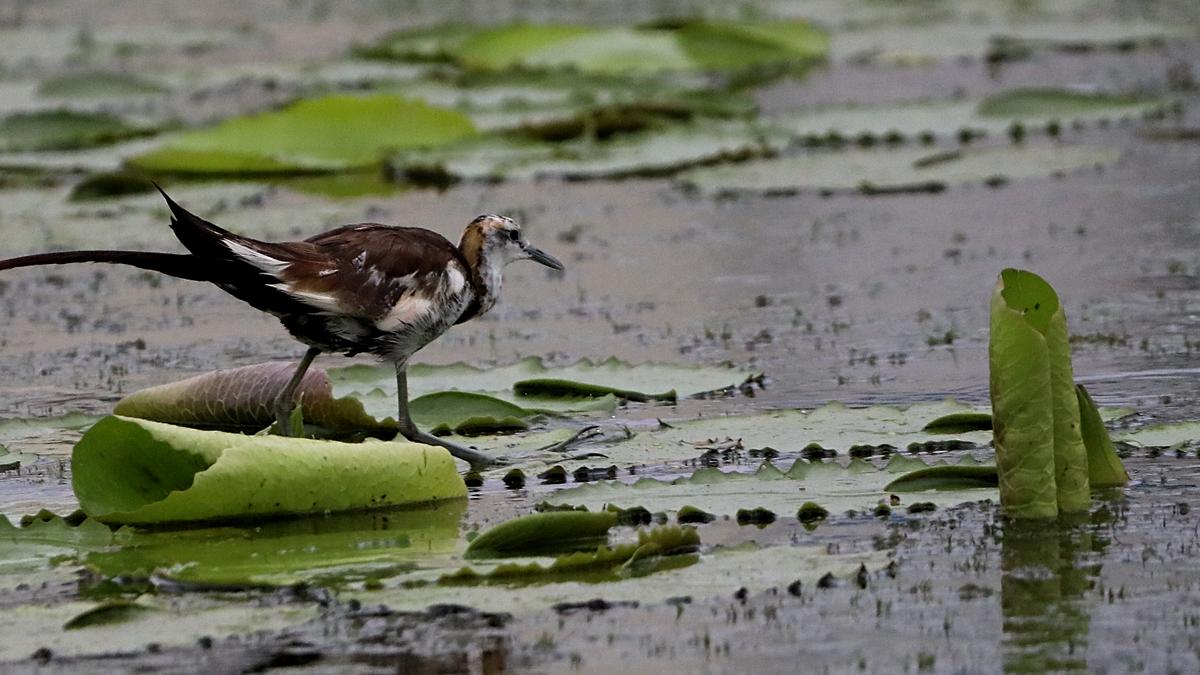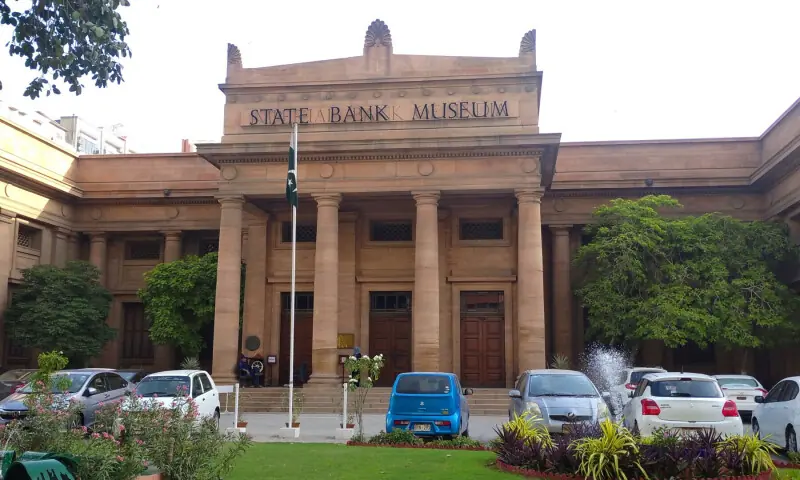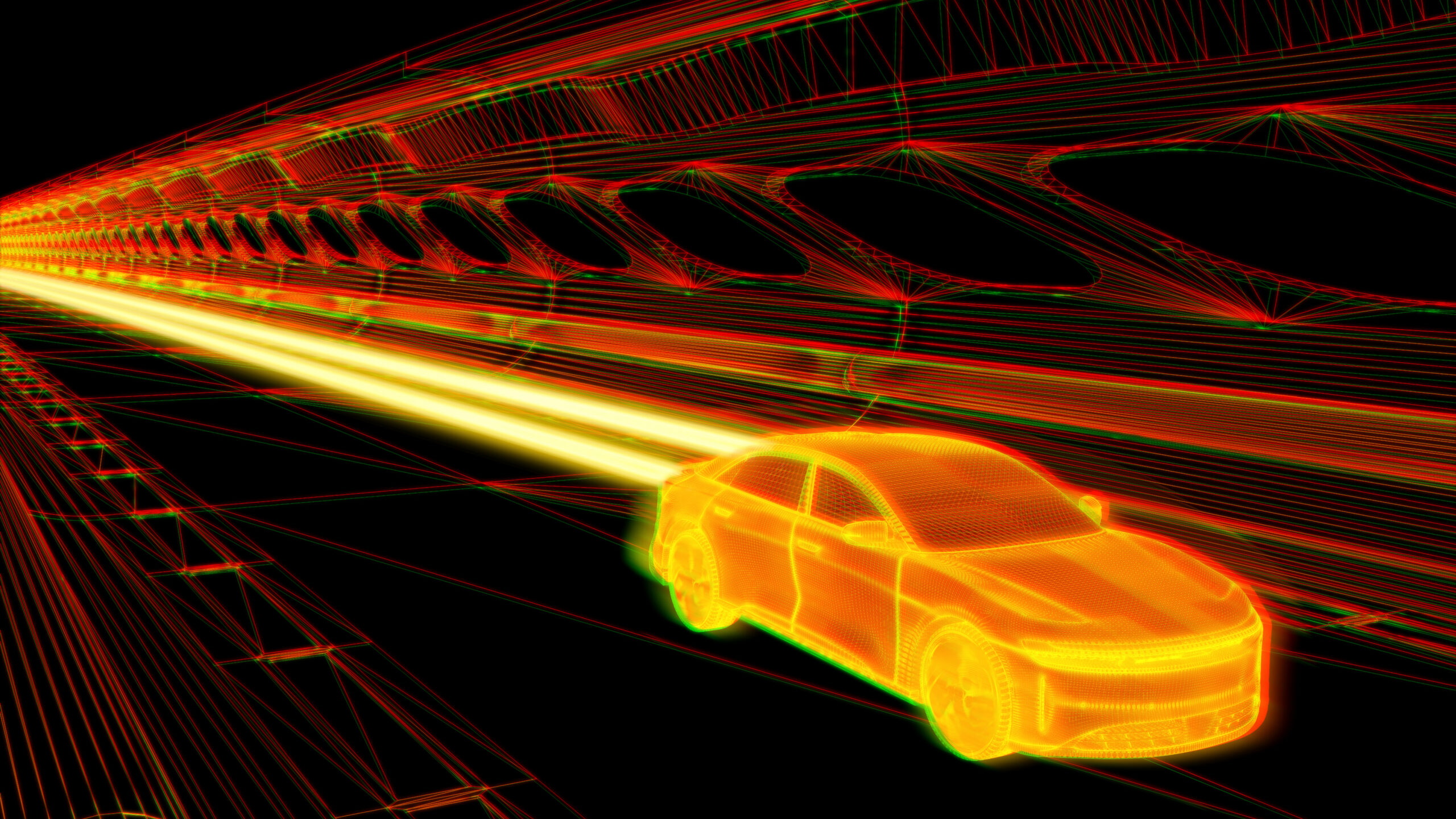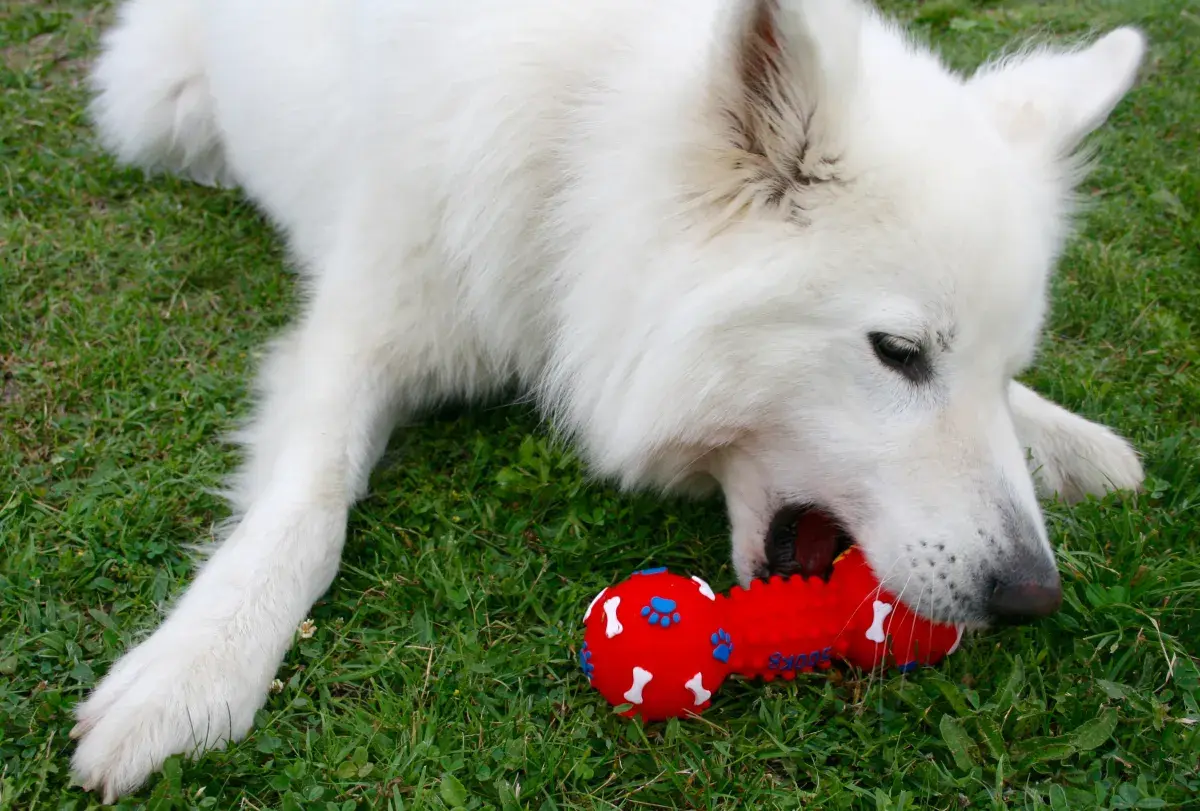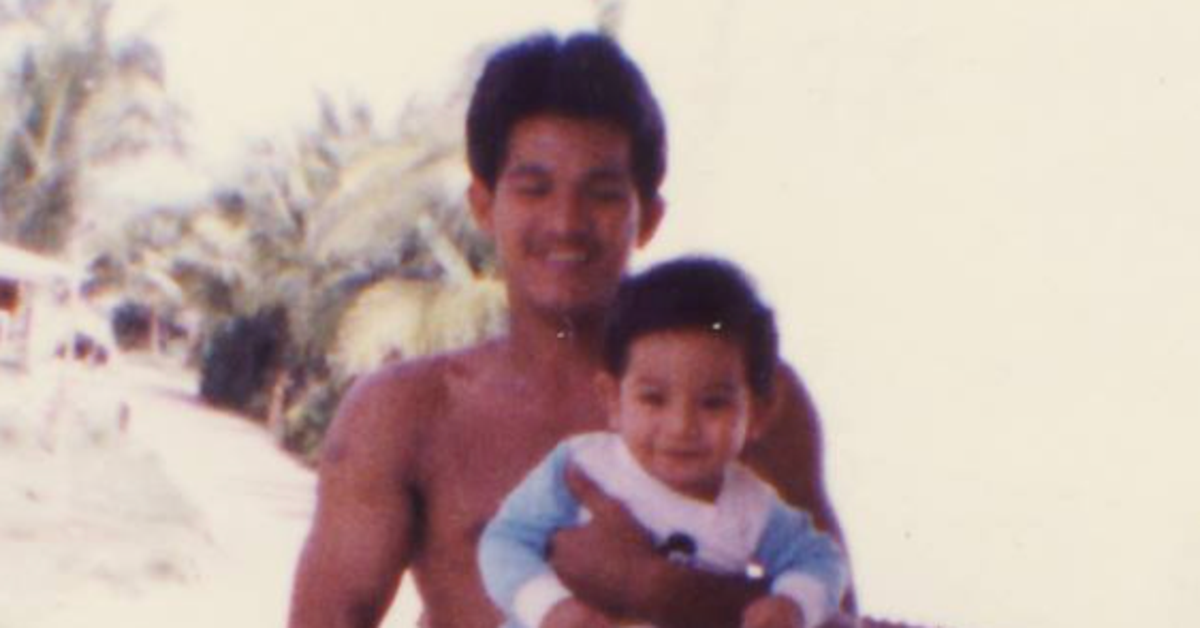
“Call me ASAP,” the message read. “It’s about your dad.”
I hadn’t thought about him in years. He existed mostly as a shadow — distant, unreliable, a figure from another life I had no desire to revisit. The message came one October night in 2016, from a cousin in the Philippines I hadn’t spoken to in years.
I hesitated. But something about it felt urgent in a way I couldn’t ignore. So I called.
My aunt answered, crying.
“Your dad was killed,” she said.
“When?”
“Last night.”
It didn’t feel real. Her voice trembled as she described what had happened: A group of masked militia had broken into my father’s dingy, dilapidated home around 5 a.m. My two half-brothers, Sal and Paul, were there. Sal was 11. Paul was 15.
The masked gunmen didn’t say much. They dragged my father outside, a few feet from the front door. Inside, they ordered my brothers to lie face down on the floor. “Don’t look,” they said, then shut the door.
Advertisement
But kids look.
Through a small hole in the wall, my frightened brothers watched everything through tears. They saw our father being kicked and beaten. They heard the questions — the accusations. He screamed, “I didn’t do it!” Then they heard a gunshot. Then another. And then another.
My dad tried to say something — his voice gurgling, his mouth full of blood. Then came the final shot.
The men left as quickly as they came. No investigation followed. No justice. Just another name crossed off the state-sanctioned target list. Official reports said my father was killed in a buy-bust operation.
Advertisement
In 2016, former Philippines President Rodrigo Duterte unleashed a bloody war on drugs — a government-sanctioned campaign that gave police and vigilantes license to kill suspected drug users and dealers. Thousands were executed without trial, often outside their homes or on the streets. A majority of Filipinos supported the crackdown, seeing it as a necessary response to crime.
Officials warned my father to surrender. They suspected him of dealing drugs and had marked him. But instead of turning himself in, he made things worse.
Not long before his murder, he illegally sold a piece of land that wasn’t his using a forged title and a fake deed. Then he vanished, taking Sal and Paul with him. They were gone for weeks, living in hiding — caught in the fallout of choices my brothers never made.
Advertisement
Here’s the part I hate admitting: I didn’t grieve. I got angrier.
Not at Duterte. Not at the masked men who pulled the trigger. I was angry at my father.
Because I knew he had been involved in drugs. I knew he made dangerous choices. He came from a wealthy family, but he was always broke. He owed people money. He lied. He cheated. Once, he stole the tuition money that my grandmother on my mother’s side had scraped together for me. He abandoned us long before my mom and I abandoned him.
The next evening, my mom and stepdad came by. They’d heard the news and stepped into my apartment like they were entering a hospital room.
Advertisement
“How are you doing?” my mom asked.
I exploded.
“He deserved it. He was a criminal!” I shouted. “This is his fault. He put himself in this place!”
I didn’t let myself think about the brutality of how he died — only that his choices had finally caught up to him.
My mom didn’t say much. She knew where that rage came from. She had lived through it too.
We left him in 1994. I was 9. My mom and dad had been fighting — about what, I still don’t know. I remember turning to her and saying, “It’s time for us to go.” It felt like I was giving her permission. We packed a few bags and left the house just north of Manila without looking back.
Two years later, in 1996, we moved to the U.S. It had taken years, but the immigration petition my grandmother filed back in the ’80s finally came through. We built a new life. My mom met my stepdad, and together they gave me the kind of stability my father never could. And they gave me my brother, Richard — now 20 — whom I helped raise.
Advertisement
But no matter how hard I tried to forget about him, my father was always there lurking in the background.
The last time I saw him was in 2002. I was 17 and back in the Philippines for a family reunion. He reached out, and I agreed to meet him at a small, dimly lit restaurant near the house I’d grown up in.
He looked worn — graying hair, hunched back, eyes down. We ordered and got our food, but I didn’t wait long. I confronted him: “Why’d you cheat on Mom? Why’d you steal my tuition? Why’d you disappear when it mattered?”
Advertisement
He mumbled excuses through mouthfuls of pancit and said he was misunderstood. I clenched my glass, trying not to explode. He had no real answers, just silence that thickened with every question.
Then he stood up and walked away — no goodbye, just gone.
When he left that table, something in me closed. I flew back home and didn’t return to the Philippines for years. As long as he was there, the country felt like a wound I didn’t want to reopen.
So no — I didn’t mourn him. In truth, I still haven’t.
I didn’t go to the funeral. Weeks later, I booked a December flight — not out of obligation, but curiosity. I told myself it was to celebrate New Year’s and my birthday, and to meet his kids. It was going to be my first time back in the Philippines since I last saw my father alive. Maybe it was guilt. Maybe a search for something — answers, connection, redemption.
Advertisement
By the time I arrived in Manila, Sal was living with my aunt and Paul was staying with his mom — their lives fractured by that night. I hadn’t thought much about them before. I knew they existed, but they didn’t mean anything to me. Years earlier, Sal had messaged me through our dad’s Facebook account. I saw the messages. I never replied.
But when we finally met, they called me Kuya — a Filipino word for older brother, though it felt like more than that. They asked about my life with a quiet curiosity. They knew more about me than I did about them, holding on to stories passed down by our dad and his family about the brother who grew up in America.
As they shared memories of the good days with our dad, I found myself resisting. I had those moments too — brief flashes of warmth, of a father who made me laugh or feel seen. But listening to them stirred something I wasn’t prepared for. The shame I carried wasn’t just about the man he became, it was about the loss of who he once was. Their stories offered glimpses of someone I still didn’t fully know, a version of him I hadn’t allowed myself to remember.
Advertisement
And I kept thinking about how they looked at me — not as a stranger, but as someone they were hoping might stay.
In those moments, the anger I had held so tightly began to quietly unravel. It didn’t vanish, but it softened, no longer the shield it had been for so long.
In its place, something began to grow: a fragile thread of family — not just inherited, but chosen.
And so, I chose to stay in their lives.
That meant showing up — checking in, remembering birthdays, sending what I could, listening without trying to fix. It wasn’t dramatic or perfect. But it was real. Sometimes, just being there — present in their lives — was enough.
Advertisement
I went back to the Philippines regularly until the pandemic. With each visit, my brothers and I grew closer. During lockdowns, we stayed in touch through video calls — sometimes short, sometimes long, always grounding. Even with an ocean between us, it no longer felt like I was far away.
That trip in 2016 reshaped my understanding of family and responsibility. Soon after, I started calling my stepdad “Dad.” He’d earned that title a long time ago, but I had always called him Tito, which means uncle. Saying “Dad” aloud felt like naming what had always been true.
I used to think family was something you were born into, but now I know it’s something you choose again and again. My stepdad chose us. My brothers chose me. And I’m learning to choose them back, every day.
Advertisement
My parents and I planted roots in the Philippines again — we bought land and built a new house there, started a few small businesses, and created a daily rhythm we follow from afar, through our CCTV apps here in America.
When I returned to the Philippines earlier this year — for the first time since the pandemic — I hadn’t seen my brothers in years. Sal had turned 20, Paul 24, and I had just turned 40. And yet, when we saw each other, it felt like no time had passed. We slipped easily back into our rhythm — older, maybe wiser, but still the same siblings at heart.
Advertisement
Sal is in college now, living in the home we built there and studying criminology. I’m paying his tuition, helping him follow his goal to investigate crimes. Paul also lived in the home for a while, but he now has a child and lives independently, and is learning how to be a dad himself. They’re growing fast, finding their own paths. And I’m learning to support them not just as who they were, but as who they’re becoming.
While we were together, Duterte made headlines again — this time from The Hague. The International Criminal Court had detained him. Formal charges of committing crimes against humanity were moving forward. And yet, even in detention, he won the mayoral race in his hometown. A man accused of mass murder is back in office. It’s a reminder of how fiercely many Filipinos still defend him, even as others fight to hold him accountable.
I never really sought justice for my father’s death. I still wonder what it’s supposed to feel like — a trial? A conviction? A headline nine years too late? Would any of it undo the trauma my brothers carry?
Advertisement
The truth is, my father was a criminal. And my brothers and I are ashamed of it — ashamed that he chose that life. When he was killed, none of us spoke out. None of us demanded answers. A part of me believed he had it coming.
Advertisement
I still don’t know how to mourn a man I let go of long before he died.
But I’ve learned how to love my brothers that he left behind.
For me, that’s enough.
20 Years OfFreeJournalism
Your SupportFuelsOur Mission
Your SupportFuelsOur Mission
For two decades, HuffPost has been fearless, unflinching, and relentless in pursuit of the truth. Support our mission to keep us around for the next 20 — we can’t do this without you.
We remain committed to providing you with the unflinching, fact-based journalism everyone deserves.
Thank you again for your support along the way. We’re truly grateful for readers like you! Your initial support helped get us here and bolstered our newsroom, which kept us strong during uncertain times. Now as we continue, we need your help more than ever. We hope you will join us once again.
We remain committed to providing you with the unflinching, fact-based journalism everyone deserves.
Thank you again for your support along the way. We’re truly grateful for readers like you! Your initial support helped get us here and bolstered our newsroom, which kept us strong during uncertain times. Now as we continue, we need your help more than ever. We hope you will join us once again.
Support HuffPost
Already contributed? Log in to hide these messages.
Names in this essay have been changed to protect the privacy of those involved.
Marc Climaco is a storyteller and communications professional. He writes about disability, the environment, and the quiet resilience of people and movements around the world. He tells the stories of those who stand up for human dignity — some have been killed, others detained or exiled, many still leading.
Do you have a compelling personal story you’d like to see published on HuffPost? Find out what we’re looking for here and send us a pitch at pitch@huffpost.com.
